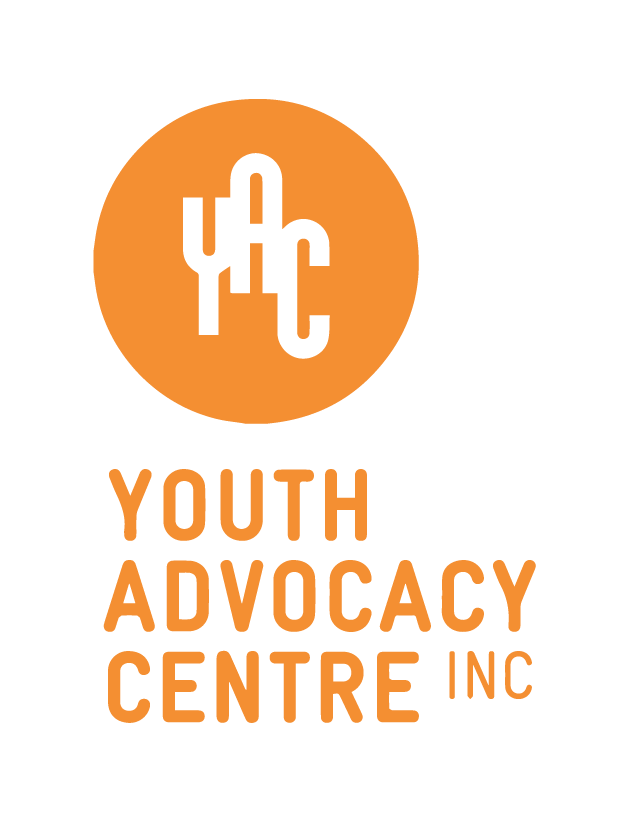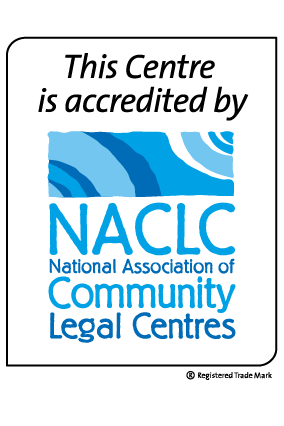Police Searches
When and why the can police search you or your property.
Searches
The police do not have a general right to search you or your property or to come into the place where you are living. When a police officer searches you without a legal right to do so, in circumstances where you have not agreed to be searched, they may be breaking the law themselves (assault).
If the police come into the place where you are living without your agreement and they have no legal right of entry, they are trespassing.
When can the police search me or my bag?
The police can ask to search you (including on the street) if they have reason to believe that you have:
- a drug
- a weapon, knife or explosive
- stolen property
- property that you have as the result of breaking the law
- things that can be used for breaking into places, cars or taking drugs
- anything else which may be evidence of an offence (such as something that can be used to graffiti)
- alcohol that has been supplied to a minor without responsible supervision
- things that can be used to hurt yourself or someone else.
OR if the police believe you are going to break a law about casinos, racing, betting or prisons. The police will usually tell you the reason for the search – if not, ASK.
If the police give you a reason for the search (they tell you that they think you have got one of the things in the list above) even if you think it’s unfair, you should let the police search otherwise you could be charged with an offence. The police officer must first warn you that it is an offence to obstruct a police officer who is doing a lawful search. You can tell the police you are not consenting to the search but allowing it because they say they have a legal right for the search. You should contact a lawyer as soon as possible if you want to speak to someone about what happened.
When can police search me with a hand held scanner?
Police can stop and search you or your belongings for knives or other weapons using a hand held scanner. Police can do this without a warrant, but only where: -
- they have been given lawful authority by a senior police officer to conduct the search in the area; and
- the search occurs within certain areas such as night club precincts, public transport, railway platforms and bus interchanges.
Before a police officer searches you, they must provide their identification to you if you ask for it. The police officer must tell you that you must allow them to search you with a hand held scanner to see if you a carrying a knife or other weapon. They must also give you written information about the search if you ask for it.
When searching you, they must do it in the least invasive way and where possible, the police officer must be of the same sex. If the hand held scanner detects something, police can ask you to give the item to them or they can search you again using the hand held scanner.
You should let the police search you and follow their directions. If you don’t, you could be charged with an offence. If you are unhappy with the search, contact a lawyer to talk about what happened and get some help.
Can I be strip searched in public?
NO. Usually if you are in a public place the police can only ask you to take off a jacket or jumper, turn out your pockets or empty a bag. If they want you to remove any other clothing then the police officer (who must be of the same sex as you) should take you somewhere private. BUT if a police officer thinks that a search must be done straight away and it is urgent (for example, you have a bomb or a firearm or a knife hidden somewhere on your body) then a police officer can do an immediate strip search in public.
If the police want to strip search you because they believe you have one of the things listed in ‘when can the police search me or my bag’ then a strip search can be done in a private place with a police officer of the same sex as you. Police officers cannot touch your genital or anal regions.
Remember to ask the police why they want to search you and, if you are unhappy about the search contact a lawyer to talk about it. Again, you can tell the police you are not consenting to the search but allowing it because they say they have a legal right for the search. You should contact a lawyer as soon as possible afterwards if you want to speak to someone about what happened.
Can I be searched inside my body for drugs?
If the police have reason to believe that you have hidden drugs inside any part of your body, they may want you to undertake a body cavity search. This can only be done with your agreement or by an Order of the court. If you are under 18 your agreement to do this must be given in front of your parent or guardian, your lawyer, an adult friend or if none of these people are available, a Justice of the Peace. The search must be carried out by a doctor. You can ask for a non-police person to be with you during the search. The police may use ‘reasonable’ force so that the doctor can do these searches or take these samples.
What kind of searches can be done at a watch house?
If you are arrested and in custody you can be searched. The rules about strip searches and body cavity searches still apply in the watch house. If the police want to get:
- body fluid samples (blood, saliva, urine)
- hair samples
- a copy of your teeth
- anything from your body that the police think will help with their case,
then they need your agreement in front of your parent or guardian, your lawyer or an adult friend and if none of these can be there, a Justice of the Peace or they need a Court Order. You can have someone with you when the doctor or dentist does this. Police can use ‘reasonable force’ so that the doctor or dentist can do this.
Can the police take a DNA sample?
Police are only allowed to take a DNA sample from you if they have a Court Order. The police need to tell you, your parent or guardian AND the Department of Communities in writing before they ask the court to make this Order. If you have been told that the police want to do this, you should immediately talk to a lawyer or one of the agencies listed under ‘Who can help?’
Can my car be searched?
Police can search your car if:
they have a warrant (they should show you a copy of the warrant and if they don’t, ASK to see it) or
if they say they have reason to believe you have:
- a weapon, knife or explosive
- a person in the car the police want to arrest
- a drug
- alcohol that has been supplied to a minor without responsible supervision
- stolen property
- property that is the result of breaking the law
- anything else that may be evidence of an offence
- things that can be used for breaking into places or cars or used to take drugs
- things that can be used to hurt yourself or someone else; or
they have reason to believe that:
- the car has been taken by you or someone else without permission
- you are going to break a law about racing, betting, prisons or nature conservation.
The police should tell you the reason for the search and if they do not, ASK. If the police tell you a reason for the search (for example they tell you that they think you have one of the things in the list above) even if you think it is unfair, you should let the police search. If you do not, you could be charged with an offence. BUT you can tell the police you are unhappy about the search and contact a lawyer or an agency under ‘Who can help?’ as soon as possible afterwards. Police can make all people who are in the car at the time stay at the car while the search is being done.
What if the police come to search the place where I am living?
Police officers can come into the place where you are living if they come to:
- make an arrest
- catch someone who has escaped
- prevent violence
- stop excessive noise (loud music, parties)
- breath test you for drink driving
- take alcohol that has been supplied to a minor without supervision.
Police can also search the place where you are living if they:
- have a warrant
- have reason to believe you have drugs
- have reason to believe you have an unlawful weapon in the place
- have reason to believe that there may be evidence of an offence which may be hidden or destroyed if the police do not search immediately.
It is a good idea to follow the police around when they are searching so that you can watch what they do. Sometimes the police may not allow you to do this, BUT you should ask anyway. If they have a warrant, the police must have it with them and some written information about your rights and responsibilities. They must provide you with a copy of the warrant and give you a statement of their specific powers under the warrant. This may include removing tiles, taking pictures and digging in your garden etc. The police can take away anything illegal found during a search.
If the police have received noise complaints (such as loud music from a CD player) and you have already been warned to turn the music down, the police can:
- take away the thing which is making the noise
- make it so it can no longer make noise (for example take the cord to the CD player)
- direct that you not make excessive noise for up to 96 hours.
If the police have taken away your CD player or any other thing used to make noise, you can collect it from the police the day following the end of the direction about the noise.
What are my rights?
You have the right to see the warrant or ask the police why they think they have a right to search you. If the police cannot give you a reason for the search or do not show you the warrant then they have no right to search you, your car or the place where you live. You should tell the police that you are not consenting to the search and are only allowing it because they claim to have a legal right. Do not stop them as you may be charged with obstructing police if you misjudge the situation. You should contact a lawyer afterwards.
You have the right to know the identity (name, rank and station) of the police officers that are asking to search you, your car or where you are living. If anything is taken from you, you have the right to know where it is being taken and to be given a receipt for the property.
You have the right not to answer any questions BUT you should give your correct name, address and age as you may be breaking the law if you do not do this. REMEMBER anything you say while a search is being done, will be written down later by the police and used in the police case against you.
Treated unfairly?
The police should treat you fairly and politely. If they don’t, you have the right to complain without the threat of being harassed. It is a good idea to write down exactly what happened including the time and date and the names of any witnesses and the police involved. You should do this as soon as possible. If you were hurt, try to get to a hospital or to a doctor as soon as possible and get some colour photographs of the injuries. You can complain to the Crime and Corruption Commission on 3360 6060 who are not part of the police service, or to the Commissioner of Police on 3364 6464 who must investigate your complaint.
Contact one of the agencies below if you want legal advice or some help in making a complaint.
Who can help?
Duty Lawyer at Court
Youth Advocacy Centre (YAC)
www.yac.net.au
3356 1002
Hub Community Legal
www.hubcommunity.org.au
3372 7677
Logan Youth & Family Legal Service
www.yfs.org.au
3826 1500
Legal Aid Queensland
www.legalaid.qld.gov.au
1300 651 188
Youth Legal Advice Hotline (Monday – Thursday 8am – 9pm; Friday 8am – Sunday 5pm)
1800 527 527
Aboriginal & Torres Strait Islander Legal Service (24hrs 7 days a week)
www.atsils.org.au
3025 3888 or (free call) 1800 012 255
Translating & Interpreting Services (24hrs)
131 450
Community Legal Centres (CLCs) see www.naclc.org.au for your nearest CLC
Browse other legal topics
This sheet is intended to provide general legal information about the law in Queensland. This information is not legal advice. If you have a particular legal problem you should contact a solicitor for legal advice. Below is a list of agencies that might be able to assist you, including legal agencies.
This sheet was last reviewed and updated in July 2023. The Youth Advocacy Centre does not accept responsibility for any action or outcome because of anyone relying on the information provided.
Follow Us
Follow us on social media for information on laws, youth rights, and news.
Contact YAC
Street address: Level 4, 16 Peel Street, South Brisbane Q 4101
Mailing address: Level 4, 16 Peel Street, South Brisbane Q 4101
Tel: (07) 3356 1002
Bussiness hours: 9am - 5pm, Mon - Fri

If you need urgent assistance outside of these hours:
- Youth Legal Advice Hotline 1800 527 527 (Mon to Thurs 8am - 9pm, Friday 8am to Sunday 5pm)
- Kids Helpline 1800 551 800 (24/7, 365 days per year)
- Lifeline 13 11 14 (24/7, 365 days per year)
- Homelessness Hotline 1800 474 753 (24/7, 365 days per year)
- If you are over 18, and seeking access to Mental Health Services in Queensland, Acute Care Team on 1300 MHCALL (1300 64 2255).


